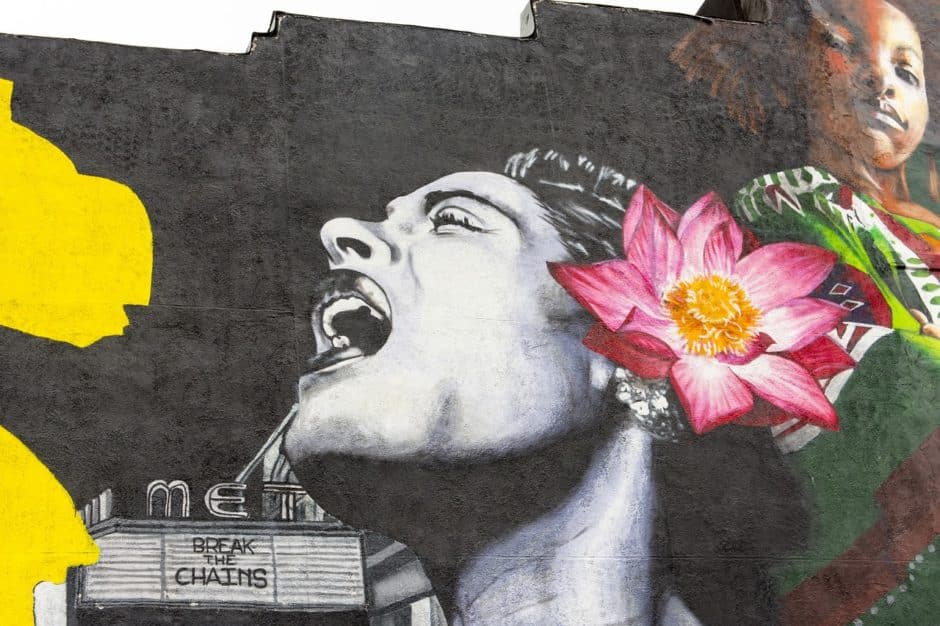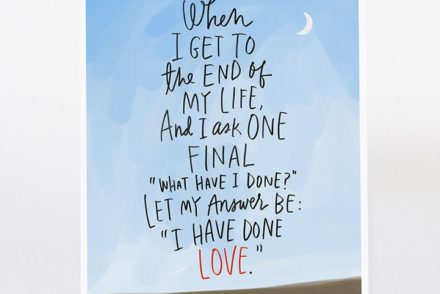By Trinica Sampson
You can’t remember the day you learned to talk or the day you began to understand speech—language sneaks in when you aren’t looking, and suddenly you can speak, suddenly you can listen as the world tells you that you are not good enough.
It begins with the books you read, with the characters who do not look like you. Next comes television, the bridge to the real world— but it’s a bridge that was never made for you to march on. A million advertisements showing you how to lighten your skin tone with makeup, how to tame your frizzy, curly hair. “7 Hairstyles to Mix Up Your Look!” the magazines shout, but your mixed hair won’t be manipulated like that.
Every Sunday your white stepmother tries to make sense of your hair. You sit in-between her legs for hours as she rips a comb through your curls and strangles your hair into submission with hair ties and gel and sheer force of will. She keeps up a running commentary as she does it, a stream of comments like, “God, your hair is thick” and “you just have so much of it” and “there’s not much I can do with this other than braids.” But you know the language, so the insidious coded message reveals itself to you as bad, bad, bad.
You remember being six years old and telling your mom that you want hair like your stepmother’s— straight, silky, not a braid in sight. Your curly-headed mother, who spent years combating the dominant message by telling you that you are beautiful, has no defense against this, the weight of the world’s condemnation. She only wants what’s best for you, but she also wants you to be happy. Sometimes those realities cannot coexist.
You go to the salon recommended by your mom’s black coworker and spend hours getting your hair relaxed, the chemicals straightening every kink. Bone-straight is what the hairdresser says, the words tinged in resignation, whenever the other clients bemoan what you are doing to your “beautiful curls.” You ignore them because you are a fast learner. You have already been taught what beautiful is, and you don’t have it yet.
When the chemicals have set so long in your hair that your scalp is burning, the hairdresser hands you a mirror and lets you look at the aftermath. Your hair is straight, but it is still too thick, too frizzy to be beautiful. Your mom asks you if you like it, and because she spent so much money on it, because you worry you might cry if you try to speak, you just nod and hand back the mirror.
When your dad sees it, he is still and quiet. He calls your mom and you hear them arguing. He says, “What have you done to her hair?” and you ask yourself the same question. When he hangs up the phone, he takes you to another salon. This hairdresser makes a sad noise in the back of her throat when she sees you and immediately gets to work, her fingers deftly picking through your hair and braiding it tighttightight against your scalp.
This begins a hair war between your parents that lasts for years, with you as the only casualty. Your dad gives up first, because he has the disadvantage of short visits and your displeasure working against him. You think you will be happier now that you don’t have to fight to keep your hair straight, but it was never what you wanted in the first place. You still aren’t good enough. You’re just playing a role, and you realize this every time you wash your hair and the curls fight their way through the chemicals.
Pretenses can’t last forever. This one lasts until you are twenty and you see black celebrities embracing their curls proudly. They are revolutionary simply by existing in mainstream media as nothing more than themselves. Nobody needs to tell you they are beautiful, because you can see it yourself. Your cut your hair and let each strand breathe. You wash out the chemicals. You stop thinking of the thickness of your hair as a burden. You let your curls shine, you let yourself take up space. When your niece says she wants her hair to look like yours, you smile.
It isn’t an epiphany—it’s the next natural step. The world told girls like you that you couldn’t be beautiful, and girls like you grew up and learned to talk back.
Trinica Sampson is a recent college graduate living in rural Ohio. This essay is an excerpt from a series of vignettes she is writing about racialization, racism, and her experiences as a biracial woman.

Join The Manifestation Retreat: Manifesting Under The Tuscan Sun. June 17-24 OR Sep 9-16. Email retreats@jenniferpastiloff.com or click the picture above.






No Comments